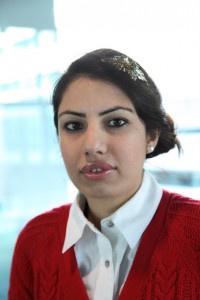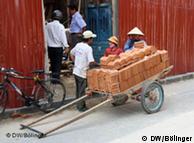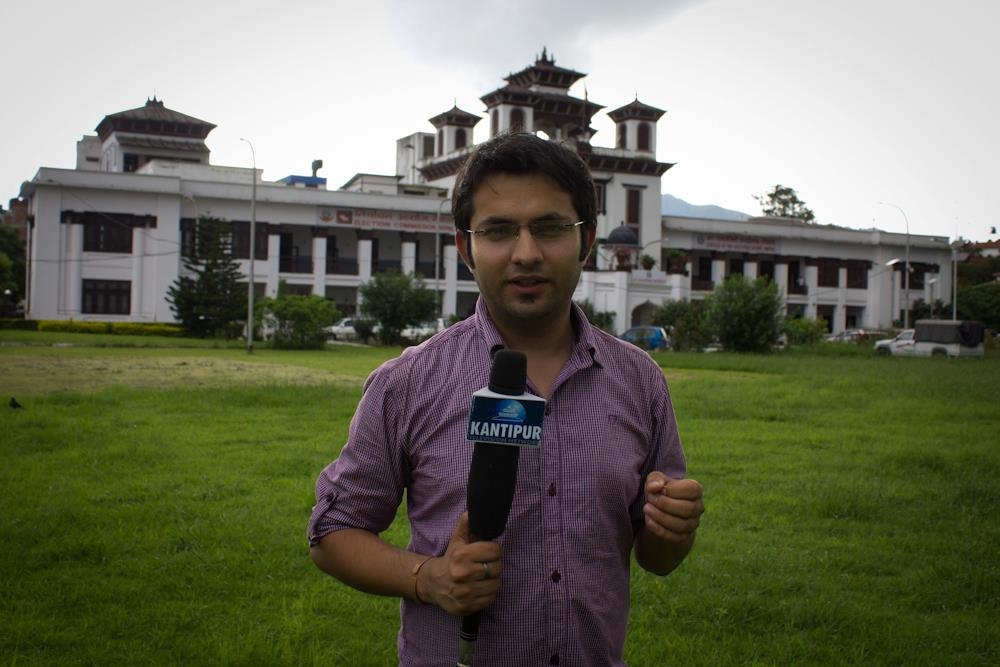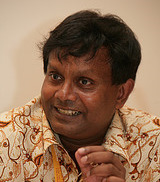What makes a person digitally literate?
Bangladeshi new media pioneer Shahidul Alam tells DW Akademie about the skills and tools that make a person digitally literate. In this interview, he talks about the way to improve digital literacy in Bangladesh and the meaning of more internet access in the country.
UNESCO has defined digital literacy as “the ability to understand and use information in multiple formats from a wide range of sources when it is presented via computers”. With the emergence of social networking, digital literacy has become a major factor in enabling people to raise their voices, communicate, collaborate and pursue wide-scale social and political reforms.
People begin to think digitally when material things are not the only measurable items, Shahidul Alam says. As a promoter of new media, he helped introduce email to Bangladesh in 1994 and set up the first web portal in the country. Alam is also a founding member and advisor in the LEARN Foundation, which is dedicated to information and communication technology (ICT) training in rural regions.Watch the video interview and find out more:
![]() read more
read more
Journalists@Work: Rajneesh Bhandari
In the first of our Journalists@Work series, we talked to Rajneesh Bhandari, a multimedia journalist in Kathmandu, Nepal. Rajneesh participated in DW Akademie’s television reporting training held in Kathmandu in 2009 in cooperation with the Television Journalist Association of Nepal (TVJ). Rajneesh, who works at Kantipur Television, gives us some insight into his everyday life as a journalist in Nepal.
![]() read more
read more
Young Vietnamese benefits from studying in Germany
At this year’s Deutsche Welle Global Media Forum, we met up with Danh-Quy Nguyen, a Vietnamese who studied in Germany and now works as the Deputy Managing Editor for ELLE Vietnam. A few years ago, Danh-Quy was one of the first to receive a scholarship for the two-year Master’s program “International Media Studies” at DW Akademie.
You graduated from DW’s International Media Studies program last year. Now, you’ve been invited back as a guest and expert for a panel-discussion at the DW Global Media Forum. How does that make you feel?
Firstly, I feel great and honored to be invited by my teachers and colleagues. I think it’s an experience that not everyone can have. So I feel very happy. Secondly, I’m also very happy to see my old friends and many colleagues from Deutsche Welle.
What do you miss most about Germany?
What I miss most from Germany is lots of trees, lots of green and the Rhine River.
Can you apply the knowledge that you learned at DW to your work in Vietnam?
Of course! I learned a lot at DW and I use it in my work every day. The most important thing I learned from the DW Master’s program is how to communicate with people from different countries and different cultures. This is very important for my daily job. As Managing Editor, I have to communicate with different editors and people from the fashion industry all around the world.
![]() read more
read more
Turning attention to women’s rights in South Asia
 Spotlighting women’s issues in South Asia is the focus of a recently introduced multimedia project at Deutsche Welle. Three young female journalists from Pakistan, Afghanistan and India were sponsored by the Friedrich Ebert Foundation to help launch the undertaking in Bonn.
Spotlighting women’s issues in South Asia is the focus of a recently introduced multimedia project at Deutsche Welle. Three young female journalists from Pakistan, Afghanistan and India were sponsored by the Friedrich Ebert Foundation to help launch the undertaking in Bonn.
Their online dossiers feature reports in Hindi, Urdu, Dari and English on topics such as maternal mortality and healthcare, women’s rights and the role of women in business and society.
“Good journalism promotes positive changes in society,” says Ayesha Hasan of Pakistan, one of the visiting journalists who participated in the kick-off of the Women’s World project in late 2011. Reflecting on the role of free media, Hasan says they “can bring about peace within Pakistan as well as with its neighbors.”
![]() read more
read more
Shedding light on the dark side of labor migration in Asia
 There are about 80 million migrant workers worldwide. We often hear that they have a positive impact on the global economy. For instance, 12% of Bangladesh’s Gross Domestic Product (GDP) is generated by citizens who work abroad in countries such as Bahrain, Saudi Arabia and Malaysia.
There are about 80 million migrant workers worldwide. We often hear that they have a positive impact on the global economy. For instance, 12% of Bangladesh’s Gross Domestic Product (GDP) is generated by citizens who work abroad in countries such as Bahrain, Saudi Arabia and Malaysia.
But researchers like Kalinga Seneviratne say that labor migration from Asia has many hidden problems.
Mr. Seneviratne is the head of research at the Asian Media Information and Communication Centre (AMIC) based in Singapore.
At the Deutsche Welle Global Media Forum in Bonn this summer, Kalinga Seneviratne and other experts discussed how the media can tackle issues pertaining to labor migration.
Talking to Deutsche Welle reporters, the award-winning journalist explains some of the problems migrant workers face, the challenges journalists encounter when reporting such stories and how the media can play a major role in promoting human rights.
Interview with Kalinga Seneviratne
![]() read more
read more











